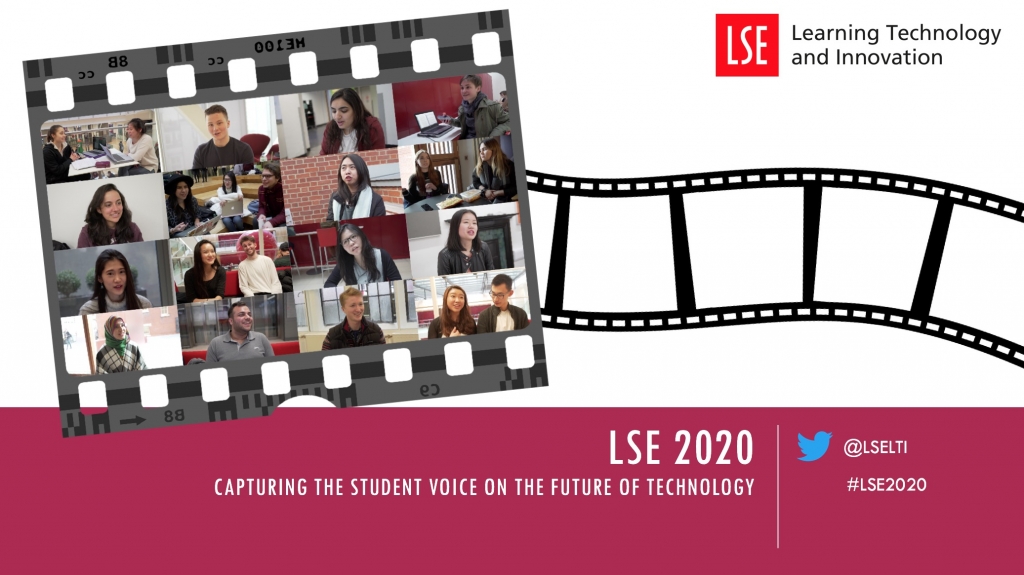Written by Emma Wilson (@MindfulEm), Research and Evaluation Graduate Intern for LTI.
This blog post is one in a series of articles that will catalogue the process of, and findings from, phase two of our student-centred project, LSE 2020.
About LSE 2020
Launched in 2016, the LSE 2020 project seeks to discuss, debate and engage with students about what teaching and learning with technology could look like at LSE in 2020. Phase one used a multi-methodological approach that began to uncover the views, experiences and expectations of students. Building upon this work, phase two aims to look more closely at how students use specific pieces of technology in their personal, educational and working lives. From smartphones to iPads, phase two aims to fully investigate the relationship of technology as it integrates itself into all aspects of a student’s journey. By better understanding how students currently view and use technology, future policy can be guided by the voice of the student.
As a recent MSc graduate at LSE, I have experienced first-hand the important role of technology in teaching and learning. Having undertaken an undergraduate degree in 2010-2013, I have already seen how much has changed in a relatively short period of time. This project provided an exciting opportunity to gain a better understanding into how today’s students navigate our technology-rich world, and the beliefs and values in which they hold around its use.
What have we done so far?
LSE 2020 places the student voice at its heart and several interesting findings have been uncovered so far. Data collection has involved interviews around campus with 88 students, an interactive workshop and an online survey which has collected the views of over 350 students. So far, three short videos have been developed and a report is due for release later this year. We have presented early findings to delegates at the Change Agents’ Network (CAN) Conference 2017; the PowerPoint presentation can be found here.
Finally, we are going to work with two filmmakers in designing a creative interpretation of the findings that will truly document what it is like to be a student living in the digital age.
What are students telling us about their use of technology..?
We have divided our research findings into three categories:
- Digital Ownership, Collaboration, Communication and Usage
- Digital Wellbeing and Identity
- Digital Literacy
The following videos provide an initial insight into some of the views held by those students who took part in the 88 interviews around campus.
Ultimately, technology is not going to disappear any time soon. Rather than resisting the changing landscape in which we live, study and work, it is an exciting opportunity to embrace the many opportunities that technology affords us in teaching and learning. It is hoped that LSE 2020 will bring to light an insight into students of today, and we can continue to have these conversations in years to come.
Further analysis, theories and conclusions will be presented in future blog posts. Stay tuned for our next blog post, where we will begin to look at the emerging findings in more detail and discuss what this will mean for Higher Education.







